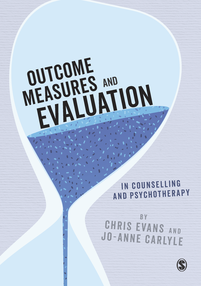Nearly six busy months since the last update: at least I can’t be accused of breaking my promise never to send more than one update per month!
CORE developments
There are too many to list all here but these are the main ones I think. Contact me if I have missed something important of yours.
- Our mapping paper with all 721 peer-reviewed papers published in English or Spanish up to the end of 2021 has been published: Paz, C., Unda-López, A., Valdiviezo-Oña, J., Fernando Chávez, J., Elias Herrera Criollo, J., Toscano-Molina, L., & Evans, C. (2025). Mapping the growth of the CORE system tools in psychotherapy research from 1998 to 2021: Learning from historical evidence. Psychotherapy Research, 1–12. https://doi.org/10.1080/10503307.2025.2457389 (Open Access). I have created an online shiny app that lets you search into the data we collated on those 721 papers to find what is most useful to you: https://shiny.psyctc.org/apps/COREpapers1/. That brings me to this.
- Shiny apps. Shiny is an open source system based on R that facilitates making online apps. It’s got a fairly savage learning curve but I’m getting on top if it and have developing pages that will be populated with apps relating to the CORE-OM and adult CORE measures (here), to the YP-CORE (here) and to the CORE system generally (here). Here are the few existing ones.
- A fair while back I created an app (https://shiny.psyctc.org/apps/CORE-OM_scoring/) that allows you to upload files of CORE-OM item scores and to download all the domain scores, CORE-6D health economic scoring and the scores from the embedded items from all the short adult measures.
- Another existing one (https://shiny.psyctc.org/apps/CSClookup2a/) that allows you to input one or two YP-CORE scores with the respondent’s age and gender and to get the CSC, referential RCI and RCSC categories using the appropriate UK, UK& Ireland and Italian referential data. (Do get in touch if you have referential data by age and gender for other translations or locations.)
- The big new development is an app that allows you to upload spreadsheets of data with one or two YP-CORE scores per respondent, with age and gender, that will allow you to download the categorised scores and change (same referential data as above) but also gives many analyses and plots of the data: https://shiny.psyctc.org/apps/YP-CORE_2_scores/. Do try it out with some of the artificial data provided and, if you are using the YP-CORE, do try it with your own data.
- Translations and global spread
- Translation of the YP-CORE into German has been completed led by Maren Rogawski supported by Professer Elena von Wirth and data collection for quantitative exploration of the translation is underway.
- Linking with that work, clinician researchers in Vienna led by Professor Marina Zeldovich (who led the translation of the CORE-OM into Russian) are looking into creating a German parent/guardian/carer/therapist form complementing the YP-CORE.
- Translation of both the CORE-OM and YP-CORE into Swahili and Dholuo/Luo is at the qualitative field testing stage in Kenya.
- The paper, with Easha Shahid in Lahore taking over the earlier work, about the transculturally interesting translation of the CORE-OM into Urdu has been accepted in the Journal of Professional & Applied Psychology and we are working to finish a paper giving the findings of the quantitative exploration of the translation.
- The work led by Antonia Errázuriz describing the quantitative psychometric exploration of the CORE-OM in Chile is out: Errázuriz, A., Passi Solar, A., Beltrán, R., Paz, C., Evans, C., & De La Parra, G. (2024). Psychometric properties of the Spanish version of the Clinical Outcomes in Routine Evaluation Outcome Measure (CORE-OM) in Chile. Psychotherapy Research, 1–13. https://doi.org/10.1080/10503307.2024.2356195.
- And work led by Maria Areas looking at the Spanish CORE-10 in Argentina is also out: Areas, M., Varela, C., Roussos, A. J., Paz, C., Evans, C., & Gómez Penedo, J. M. (2025). Propiedades psicométricas del Clinical Outcomes in Routine Evaluation (CORE-10) en Argentina. Revista Argentina de Ciencias Del Comportamiento, 17(1), 61–71. https://doi.org/10.32348/1852.4206.v17.n1.37272 (in Spanish and English).
CORE related papers out of my work with Prof. Paz and UDLA
- We helped with the Chilean and Argentinian work and the mapping review above and here are some others I should have included last time are as follows.
- Zurita‐Calderón, S., Valdiviezo‐Oña, J., Evans, C., & Paz, C. (2025). What Stories Does Routine Outcome Monitoring Tell? Contrasting Psychological Distress Scores With In‐Therapy Narratives. Counselling and Psychotherapy Research, 25(2), e70023. https://doi.org/10.1002/capr.70023
- Paz, C., Dogmanas, D., & Behn, A. (2025). The time has come to implement routine outcome monitoring in mental health services across Latin America. Frontiers in Public Health, 13, 1557029. https://doi.org/10.3389/fpubh.2025.1557029
- Ortiz-Prado, E., Izquierdo-Condoy, J. S., Fernandez-Naranjo, R., Vásconez-González, J., Encalada, S., Mosquera, J., Cordovez, S., Camino, N., Montenegro-Salazar, D., Viscor, G., Diaz, A. M., & Paz, C. (2024). The burden of suicide across different altitudes: 11-year geodemographic analysis conducted in 221 cantons in Ecuador ranging from 0 to 4300 m of elevation. BJPsych Open, 10(5), e161. https://doi.org/10.1192/bjo.2024.736
- Valdiviezo-Oña, J., Laso Ortiz, E., Paz, C., Hernández González, E., Macías-Esparza, L. K., & Morquecho Güitrón, C. (2024). Factores socioeconómicos relacionados con el malestar psicológico de adultos jóvenes de México, Ecuador y España: Un estudio exploratorio. Acta Universitaria, 34, 1–17. https://doi.org/10.15174/au.2024.3952
- Valdiviezo-Oña, J., Unda-López, A., Montesano, A., Evans, C., & Paz, C. (2024). Routine Outcome Monitoring from Psychotherapists’ Perspectives: A Framework Analysis Study of Expected Benefits and Difficulties. Administration and Policy in Mental Health and Mental Health Services Research. https://doi.org/10.1007/s10488-024-01350-w
- Unda-López, A., Paz, C., Hidalgo-Andrade, P., & Hermosa-Bosano, C. (2023). Variations of work engagement and psychological distress based on three working modalities during the COVID-19 pandemic. Frontiers in Public Health, 11, 1191314. https://doi.org/10.3389/fpubh.2023.1191314
Things tangentially related to CORE, PBE and ROM
- The glossary that goes with our book (Evans, C., & Carlyle, J. (2021). Outcome measures and evaluation in counselling and psychotherapy (1st ed.). SAGE Publishing. https://ombook.psyctc.org/book/) is at 395 entries and continues to expand by an entry about every three days!
- My Rblog, with more detailed expansion of topics than in the glossary, with R code, is up to 55 entries. Do have a look!
- As well as the CORE specific shiny apps noted above, there are over 30 other interactive apps here.
- The Society for Psychotherapy Research, where I started to find colleagues and which fostered the creation of CORE, continues to develop. Colleagues from Albania, Chile and Equador will be talking about translating and using the YP-CORE in settings outside the “global North” in a panel session at the SPR meeting in Kraków Poland in a couple of weeks.
Sent 12/6/2025. Text and header image (Alpine Chough flying against backdrop of Alping view, Aime2000, France) both by CE and licensed under the Attribution 4.0 International (CC BY 4.0).


